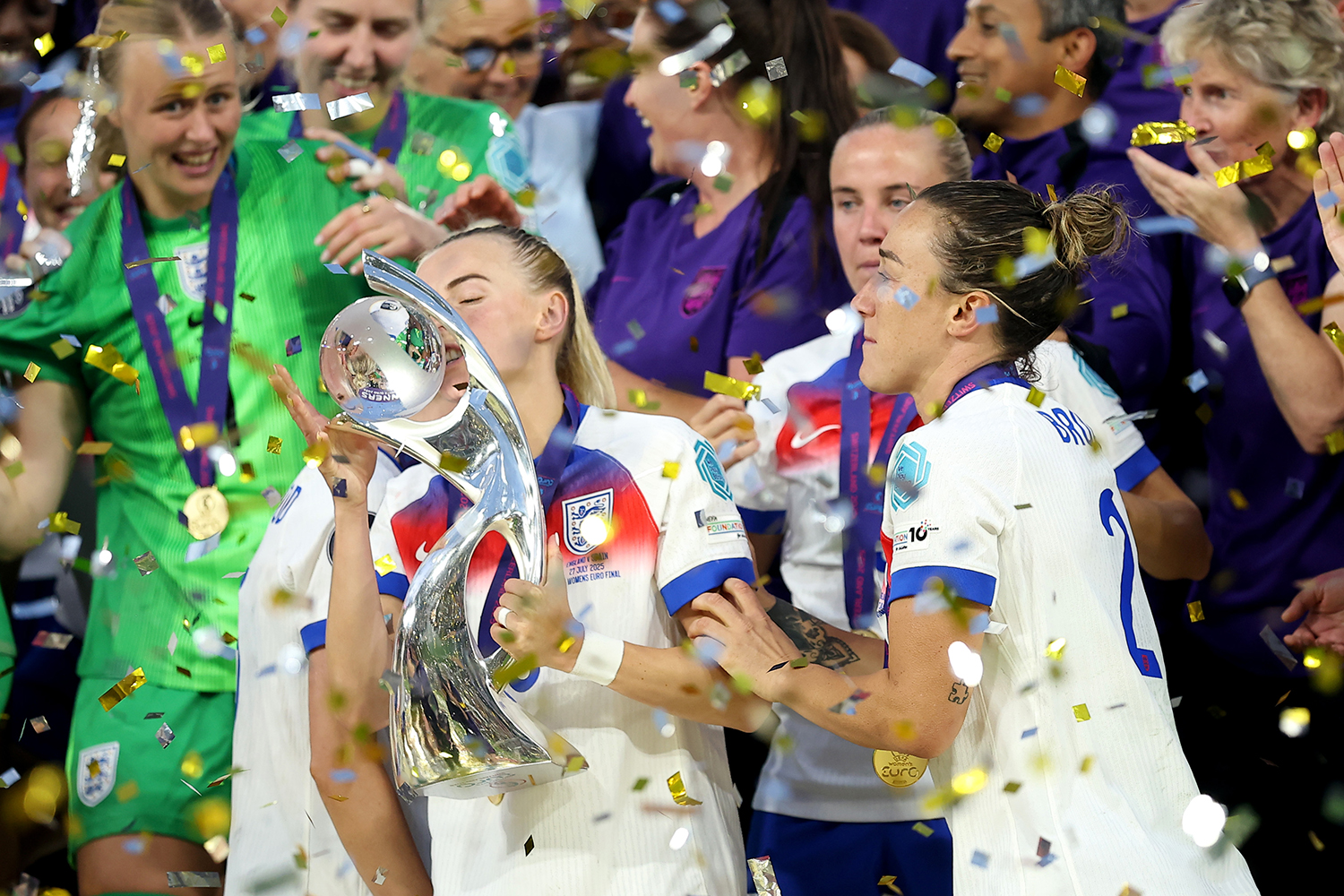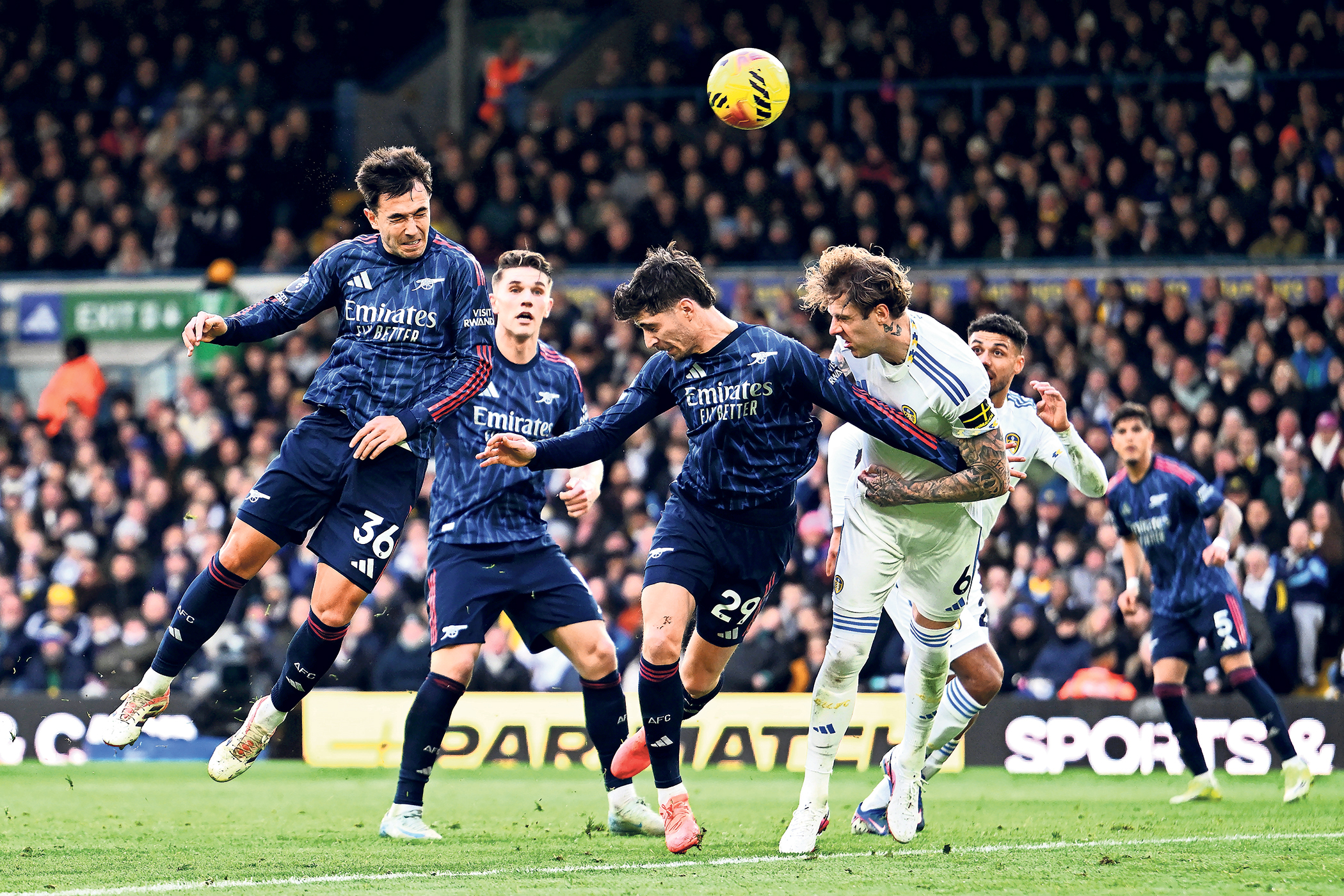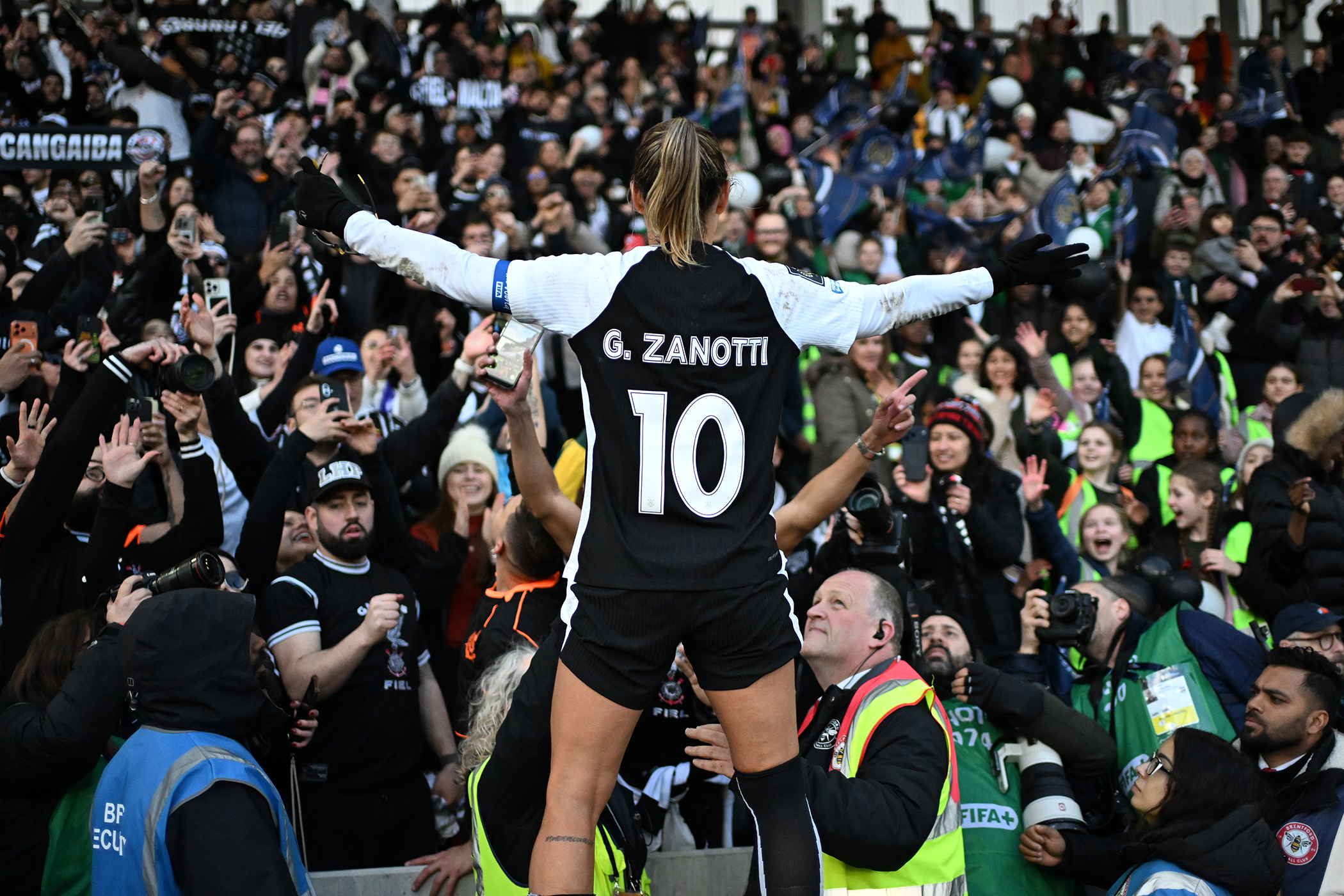Nothing worthwhile doing is ever easy, the saying goes.
England became European Champions for the second time in their history, three years after they won the tournament for the first time, and in the process became the first English football team to win an international tournament not on home soil.
Their 3-1 penalty win over Spain, after the match had finished 1-1 after extra-time, felt like justified vengeance for their World Cup final loss two years prior.
How can you even begin to sum up this tournament from England’s perspective?
They led in the knock-out stages for a grand sum of four minutes, in the semi-final against Italy.
They needed extra-time in every game and two penalty shoot-outs. They looked dead and buried on multiple occasions. But there is something almost zombie-esque about this side. As soon as you count them out, they are back again to finish off the job. And the Lionesses did finish it off.
Finals at international tournaments can often end up being some of the drabbest moments of the tournament. Despite all the build-up and anticipation, the amount riding on the match for both sides can prompt cagey games where the tension inherent within them becomes the most intriguing aspect as opposed to the quality of football.
That was not the case in Basel as England and Spain went at each other from the get go. The latent rivalry between these two sides, who showed exactly why they should be considered the two best in Europe, in combination with the amount of times that they have played each other in recent years, meant that from the first whistle both sides were playing with intensity and desire.
Related articles:
When Spain are discussed as a side, it is often in the context of what they can do with the ball but for both teams, this final was about what they could do without it.
England started the brighter with the same energetic out of possession approach that brought them success at Wembley in February in a 1-0 win.
Newsletters
Choose the newsletters you want to receive
View more
For information about how The Observer protects your data, read our Privacy Policy
It was a remarkable early display given that this side had played 120 minutes in both their quarter-final and semi-final, and had looked exhausted for much of the tournament. But that is the nature of this England side who often look at their best just when you think they should be at their worst and vice versa.
Yet the incredible thing about Spain is that even if you do manage to win the ball off them, you barely get a second to think about what to do with it before they have nicked it back off you.
It is one of the great under-appreciated elements of this team. They have possession of the ball not just because they can keep hold of it, but because they also desperately want it. It is enough to exhaust even the best teams, but England showed they were good enough to withstand it.
That was because this performance was their most complete of the tournament and further proof that when we talk about this team, we are truly talking about a squad.
Jess Carter was recalled to the starting XI having missed out on the semi-final due to Esme Morgan being preferred for her on-ball abilities.
It has been a tough tournament for Carter, who has struggled in an England shirt but also been forced to deal with online racist abuse.
But she was magnificent in the final, showcasing her all-round defensive ability at its very best as she blocked, tackled and challenged to keep Spain at bay. Perhaps the best way to describe how she rose to this occasion was when during a stoppage in play towards the end of the second half, she was laughing and smiling as Sarina Wiegman imparted some instructions to her.
Equally, Alessia Russo who scored the equaliser has had to accept that the limelight has gone elsewhere for most of the tournament as players like Michelle Agyemang have stolen the show with last-gasp equalisers.
Yet regardless, she has continued to run tirelessly and await patiently for when chances might come her way. In this final, she was relentless in stretching the play as England looked to play long balls between centre-back pairing Laia Aleixandri and Irene Paredes, but also dropping deep to hold up the ball when needed or become an auxiliary midfielder, essential given the quality of Spain’s own midfield.
Look at Niamh Charles, who has played less than 90 minutes at the tournament but stepped up to take a penalty in the shoot-out and fiercely put it away.
Chloe Kelly, who has now made the most substitute appearances in European Championship history, and can justifiably argue she has won England both of them, having scored the winning penalty in this final.
Everywhere in this team are players who have selflessly done whatever they needed to for the team, even when it looked like there was no more that could be done.
Three years ago when England won this tournament for the first time, it was heralded as a watershed moment for women’s football in the country. Everything has accelerated in the three years since as stadiums get packed to watch matches every month and girls’ participation continues to skyrocket.
For large numbers of people who discovered women’s football through the Lionesses lifting the trophy in 2022, this is apparently what this England team do now.
But it is an unprecedented footballing success for the country. Given everything that has changed since 2022, who knows where women’s football will be by the time the next one comes around.
Everyone talks about legacy. This group of players never stops creating it.
Photograph by Maja Hitij/UEFA/Getty Images



